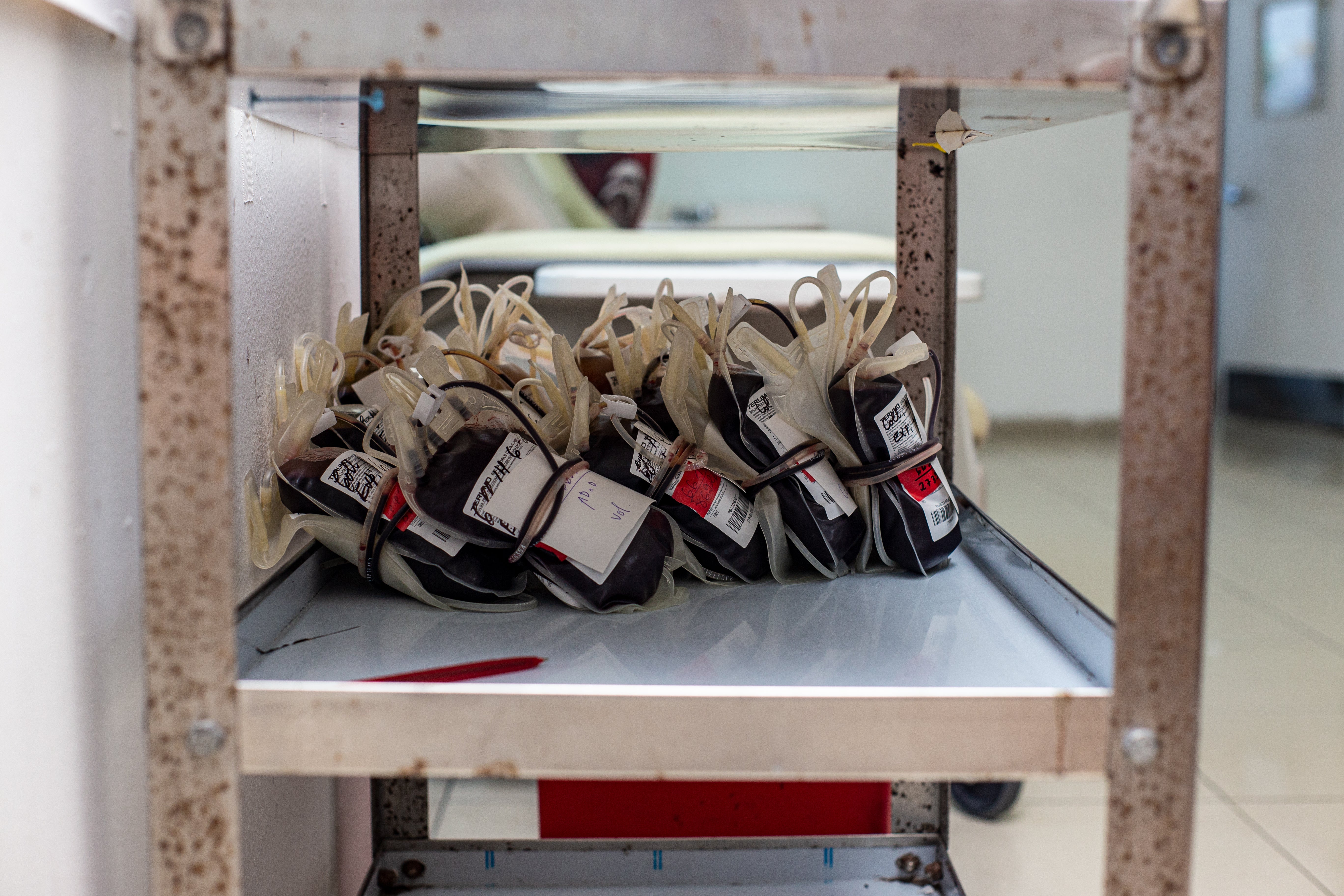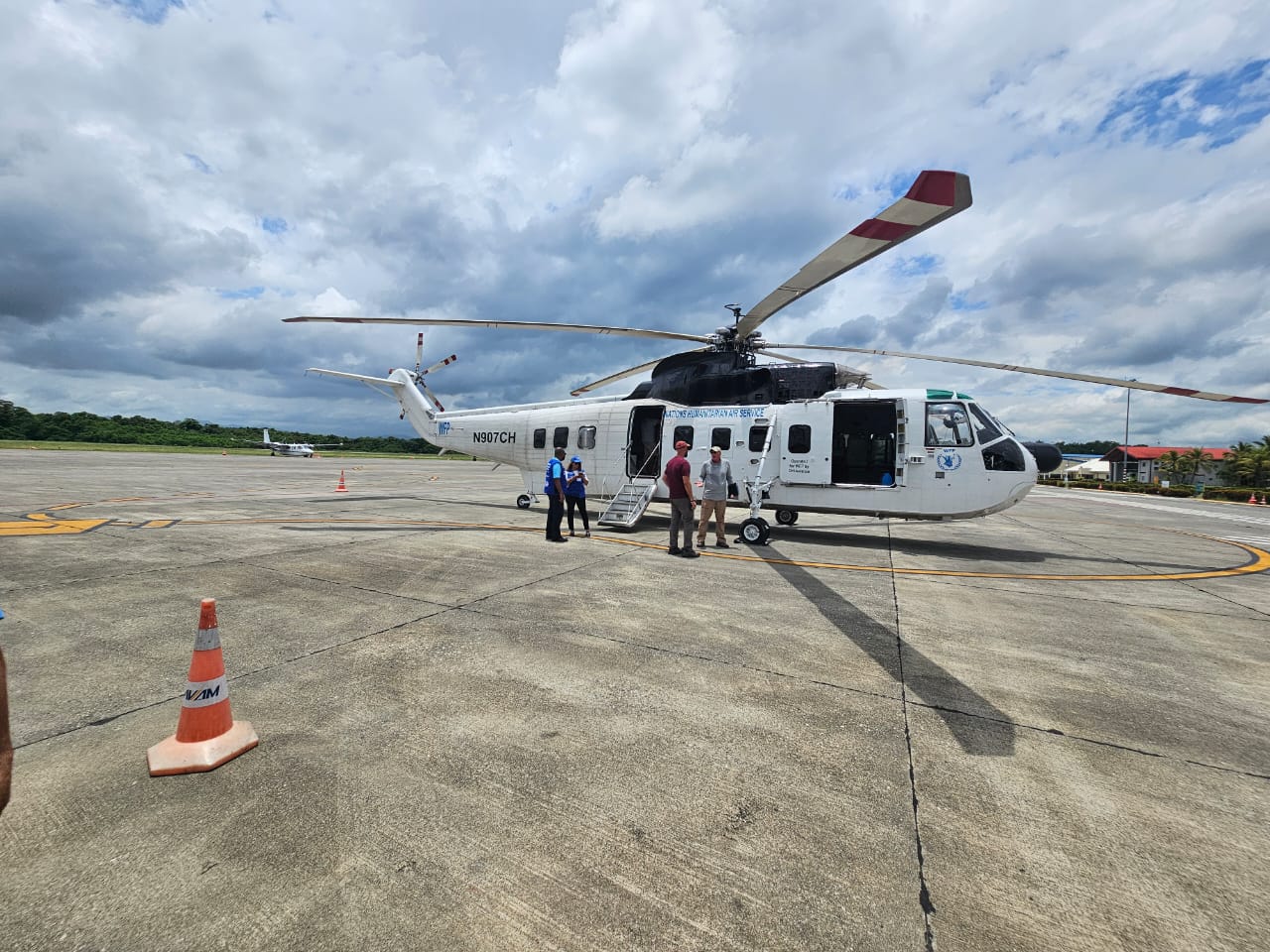
Port-au-Prince, Haiti, September 27, 2024 (PAHO) - The security crisis that Haiti has been experiencing for several months has only exacerbated the structural problems of an extremely fragile public health system. The blood transfusion sector, crucial for meeting the need for blood products for patients requiring urgent transfusions, has been particularly hard hit by this new crisis.
Shortages of essential inputs for screening for transfusion-transmissible infections (TTIs) threatened to prevent the National Blood Transfusion Center (CNTS) from guaranteeing the safety of blood products. The breakdown of the cold chain, linked to the insufficient availability of mains electricity, paralyzed several Blood Transfusion Stations (PTS) in major cities, compromising the departments' ability to supply the population with safe blood at the right time.
A rapid, coordinated response from PAHO/WHO
Faced with this alarming situation, the Pan American Health Organization/World Health Organization (PAHO/WHO) provided technical support to the Ministry of Public Health and Population (MSPP), with the aim of maintaining blood transfusion services in the country. Thanks to support from the United Nations Central Emergency Response Fund (CERF) and the European Community Humanitarian Office (ECHO), orders for essential TTI screening inputs and reagents have been placed, enabling screening tests to continue at the CNTS.
At the same time, to compensate for the break in the cold chain, PAHO/WHO supported the Programme National de Sécurité Transfusionnelle (PNTS) by supplying batteries and inverters, enabling the alternative solar energy systems installed in the PTSs to be put back into operation.
“This support has not only enabled the affected STPs to resume their activities, but has also strengthened their resilience, given the chronic shortage of city power,” explains Dr Noel, Director of the PNTS.
Overcoming logistical challenges in a context of violence
The delivery and distribution of medical inputs in a country where gang violence regularly blocks roads and border crossings represents a major challenge. Indeed, to cope with the closure of Port-au-Prince international airport and the border with the Dominican Republic, medical inputs first had to be transported using a humanitarian airlift, with the support of UNHAS. These inputs were then distributed by road to the four corners of the country, where the need for blood products is constant.
This intervention ensured the continued availability of safe blood products throughout the country during the crisis.
Vital support in a time of crisis
“The support provided by PAHO has made it possible to overcome the obstacles linked to insecurity and the inadequate availability of mains power, and to strengthen the resilience of the Haitian health system. However, the situation remains fragile, and challenges remain in certain health departments, requiring ongoing support,” explains Dr Oscar Barreneche, PAHO/WHO Representative in Haiti.
PAHO/WHO's commitment to supporting Haiti in the field of blood safety continues, notably with the implementation, alongside the PNST, of activities to raise awareness and promote voluntary blood donation. Mobile blood drives have also been organized to encourage the population to donate blood, thereby strengthening the country's blood product stock.






